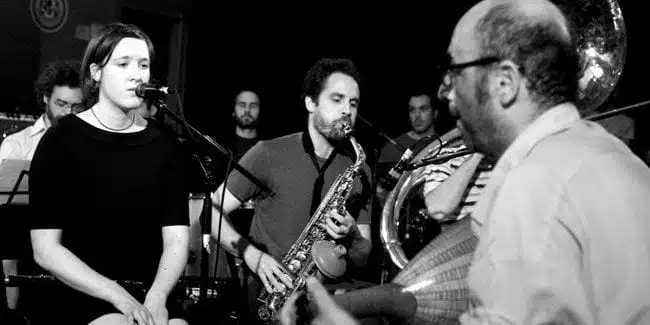
The wild, anarchic nature of dance, that moment when any semblance of a mind/body duality shatters, is frequently of profound, often disturbed interest to observers. Accounts of ‘first’ contact between European explorers and indigenous peoples almost inevitably contain descriptions of dances and rituals, told in a voice of fear and incredulity. These ‘civilized’ eyes found disgust in the savagery they perceived, and no matter how much they wished it destroyed, how much these conquerors expected their hosts to change, to disappear even, they still identified in the motions the spark of freedom. In her Biography of No Place, Kate Brown describes the wedding ceremonies of chassidim in the pre-war Russian borderland and how their communities danced for days on end in joy, their eyes wild and open to the nature of God.
Why is it, then, that so much of what passes for dance music is in fact so sterile, seeking only the momentary highs of Molly instead of the ecstatic real thing, when the act it is meant to provoke so thoroughly smashes the rational mirror? Maybe that sterility matches the rote quality of its audience, afraid of what will happen when the House beat stops, comforted by the wait for it wait for it rush preceding a drop that always comes. We can rest assured that a song like David Guetta’s “Titanium” (223 million YouTube views and counting) will hit those dramatic highs because it starts that way out of the gate, beginning at 11 and never letting go. It’s all just so fucking boring, right?
But this isn’t a lecture — it’s a celebration. That is what Land of Kush keeps reminding us. Recorded using local Montreal musicians, The Big Mango is a love letter from composer Osama (Sam) Shalabi to his new home, Cairo, and all of its tumults and contradictions, and the music thrills like few things can. Reveling in free-jazz noise, rock rhythms, and the radical propulsion that Shalabi encountered on trips to Dakar, Senegal, the album weaves the divine spirit unleashed through fury and joy and dance into an utterly fascinating whole.
By no means is this strictly music for movement, however — at least not of any structured sort. Before really taking off on “The Pit (Part 1 and 2)”, we get almost 10 minutes of burgeoning, though composed, chaos, murmured vocals clashing with flute, Jason Sharp’s baritone sax bleating over the top and reminiscent of Colin Stetson’s avant-drone work. This pinging between controlled pandemonium and something beautiful, strident, transcendent, is not accidental. Shalabi is tackling the nature of change and the place of women in Arab culture on Big Mango, and by so clearly blurring the strange and the celebratory, he suggests that even sweeping, radical change need not be a revolution, but perhaps a way of life, movement as vital force in the universe.
And when this thing moves, it moves. “The Big Pit” rides hand percussion and a sax rhythm as guitars ring out, and Ariel Engle’s vocals take us to a higher place. I am reminded of Debo Band, an Ethiopian jazz group based in Boston whose ferocious live show stole CMJ for me last year. There is no sense of a self-conscious attempt to mash ‘eastern’ and ‘western’ styles together because it’s all just music, and Shalabi too able of a composer to stumble, clumsy, into that trap. With its electronic samples and Thelonious Monk piano, “Sharm El Bango” is the sound of a big city in transit, no matter the continent, and “Drift Begune” combines sitar, hand drums, and a dissonant climax in a way that nevertheless feels of a piece with everything around it.
“The Big Mango”, however, is where Shalabi’s vision truly pushes out and we find a fire unlike anything else. Singer-songwriter Molly Sweeney takes lead vocals and guitars burn and strings saw and saxophones feel like chips being taken out of some mammoth wall, piece by mounting piece. Listening prompts visions of celebration, uninhibited movement, growth and turnover and rebirth. Shalabi seems to suggest: nothing is so far away that we can’t see it, and if so, it’s graspable, too. Freedom is a force all by itself, and uninhibited, we can once more dance this world into being, anew.

